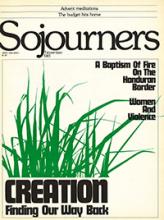For most of us it was just another Thursday, but for millions of people who depend in some way on the federal government for their livelihood October 1, 1981, was Day One of the Year One for Ronald Reagan's America. October 1 was the first day of the 1982 federal fiscal year and thus the first day of the budget that is supposed to stop inflation, decrease unemployment, cut taxes, increase military spending, balance the budget, and protect the "truly needy," all at the same time.
But as John Anderson predicted during the 1980 campaign, they are doing it with mirrors. Already there is growing doubt, even in Republican circles, that Reagan's plan can make good on his promises. Reagan, of course, says that it is too early to judge, but in fact some of the results of his program are already painfully clear.
For the 30 million people in the U.S. officially classified as poor, and many others who are near-poor, October 1 was definitely not just another Thursday. It marked the beginning of major changes in their lives. Starting that day at least 400,000 people, most of whom work at very low-paying jobs, lost the Aid to Families with Dependent Children (AFDC) money that made up the difference between their meager paychecks and their families' basic needs. And since Medicaid coverage is tied to AFDC eligibility, they lost their access to affordable health care as well. Another 279,000 people began seeing their AFDC checks reduced as a result of changes in the program's rules. These changes include counting food stamps and housing subsidies as income when determining eligibility and lowering from 20 to 18 the age to which dependents in school are covered.
Read the Full Article

